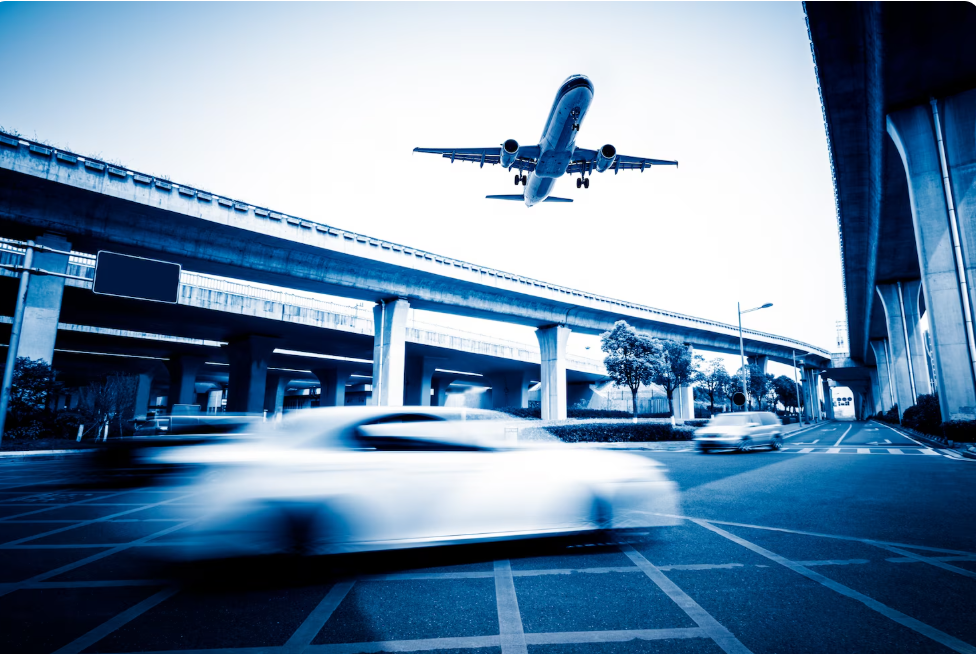Artificial intelligence (AI) is revolutionizing various industries, and aviation is no exception. At Bangalore’s Kempegowda International Airport, AI is making significant strides in improving efficiency, safety, and customer experience. For professionals interested in exploring AI’s impact on aviation, an artificial intelligence course can provide a deeper understanding of these transformative technologies. Here’s how AI is streamlining operations at one of India’s busiest airports.
Optimizing Passenger Flow with AI
Managing passenger flow is essential in a busy airport environment. AI-powered systems monitor passenger movement throughout the airport, from check-in to boarding. By analyzing data from various cameras and sensors, AI can identify bottlenecks and optimize resource allocation. This ensures a smoother and faster experience for travelers, reducing wait times and enhancing overall efficiency. AI helps airport staff make data-driven decisions, enhancing the passenger journey.
Enhancing Security Screening with AI Technology
Security is a top priority at any airport, and AI is playing an unskippable role in enhancing screening processes. AI-powered scanners analyze baggage and detect potential threats more accurately and quickly than traditional methods. Machine learning (ML) algorithms learn from historical data to improve detection capabilities over time. This reduces false alarms and ensures that security staff can focus on genuine risks, making the airport safer for everyone.
Baggage Handling Efficiency with AI Solutions
Lost luggage can be a true nightmare for travelers, but AI is helping Bangalore International Airport minimize this issue. AI-driven systems track baggage in real-time, ensuring that it reaches the correct destination. These systems can also predict potential delays in baggage handling, allowing staff to intervene before problems arise. By automating baggage tracking, AI reduces errors and improves the efficiency of the entire process.
Predictive Maintenance for Airport Equipment
Maintenance is vital for airport operations, as equipment failure can lead to costly delays. AI-powered predictive maintenance monitors equipment performance and identifies signs of wear before breakdowns occur. Sensors on escalators, conveyor belts, and other machinery collect data on temperature, vibration, and usage. AI algorithms analyze this data to actively predict when maintenance is needed, allowing for proactive repairs. This approach ensures that airport equipment is always in optimal condition, mitigating downtime and maintenance costs.
Facial Recognition for Streamlined Boarding
Facial recognition technology is enhancing the boarding process at Bangalore International Airport. AI-powered facial recognition systems match passenger faces with their passport photos, streamlining identity verification. This speeds up boarding and reduces the need for physical documents, making the process more convenient for travelers. Facial recognition is also used at security checkpoints, further improving the airport’s efficiency and security.
Improving Flight Operations with AI-Driven Analytics
Flight operations require precise coordination, and AI is helping Bangalore’s airport optimize this process. AI-driven analytics monitor factors like weather, air traffic, and runway availability to assist in flight scheduling and planning. By analyzing real-time data, AI can predict potential delays and suggest alternative routes or schedules. This allows airport staff to make informed decisions, minimizing disruptions and ensuring that flights depart and arrive on time.
Personalized Customer Service with AI Chatbots
Customer service is essential at any airport, and AI is making it more accessible and personalized. AI-powered chatbots assist travelers with flight information, gate changes, and baggage inquiries. These chatbots can handle multiple languages, catering to the diverse passengers who pass through Bangalore’s airport. By providing instant answers to several common questions, AI chatbots reduce the workload on customer service staff and enhance the passenger experience.
Smart Parking Management Using AI
Parking can be a hassle at busy airports, but AI is helping streamline the process. AI-powered parking management systems monitor parking availability in real-time and guide drivers to open spots. These systems also offer mobile payment options, making it easier for travelers to find and pay for parking. By optimizing parking operations, AI helps reduce congestion and improve the overall experience for airport visitors.
Reducing Energy Consumption with AI
Bangalore’s International Airport is committed to sustainability, and AI is supporting these efforts by optimizing energy consumption. AI systems monitor energy usage across the airport and identify areas where consumption can be minimized. For example, AI can adjust lighting and HVAC systems based on passenger flow and weather conditions. This reduces energy waste and supports the airport’s goal of minimizing its environmental impact.
AI in Air Traffic Management
Air traffic management is a complex task that requires real-time data and quick decision-making. AI assists air traffic controllers by analyzing data on weather, air traffic, and flight paths to optimize routes. AI can also predict potential conflicts and suggest adjustments to avoid delays. By enhancing air traffic management, AI helps ensure that flights operate smoothly and safely, even in busy airspace.
The Role of Data Analytics in AI Applications at the Airport
Data analytics is a cornerstone of AI applications at Bangalore’s airport. AI systems gather and further assess vast amounts of data from various sources, including passenger information, flight schedules, and equipment performance. This data is essential for making well-informed decisions and optimizing operations. Professionals interested in learning about data analytics in aviation can benefit from an artificial intelligence course in Bangalore, which offers insights into real-world applications.
Career Opportunities in AI for Aviation Professionals
AI is creating new career opportunities in the aviation industry. From data scientists as well as machine learning (ML) engineers to AI strategists, the demand for AI professionals in aviation is growing. Bangalore’s tech ecosystem offers ample opportunities for those interested in this field. By completing an artificial intelligence course, you can develop the skills needed to contribute to AI-driven innovations at airports and other aviation hubs.
Preparing for the Future of AI in Aviation
As AI technology advances, its impact on aviation will only increase. Bangalore’s International Airport is already leading the way, but there is much more potential for AI-driven innovations. The future may bring fully automated check-ins, enhanced biometric security, and further improvements in operational efficiency. For those interested in staying ahead in this field, continuous learning is essential. By pursuing courses and certifications in AI, you can actively stay updated on the latest trends and make a meaningful impact.
Conclusion
AI is transforming Bangalore’s International Airport, making operations more efficient, secure, and sustainable. From facial recognition and predictive maintenance to energy management, AI is streamlining every aspect of airport operations. For professionals looking to be part of this change, an artificial intelligence course in Bangalore offers a pathway to success. As AI continues to evolve, Bangalore’s airport will likely serve as a model for other airports around the world, showcasing the power of AI to improve the travel experience and enhance operational excellence.
For more details visit us:
Name: ExcelR – Data Science, Generative AI, Artificial Intelligence Course in Bangalore
Address: Unit No. T-2 4th Floor, Raja Ikon Sy, No.89/1 Munnekolala, Village, Marathahalli – Sarjapur Outer Ring Rd, above Yes Bank, Marathahalli, Bengaluru, Karnataka 560037
Phone: 087929 28623
Email: enquiry@excelr.com






